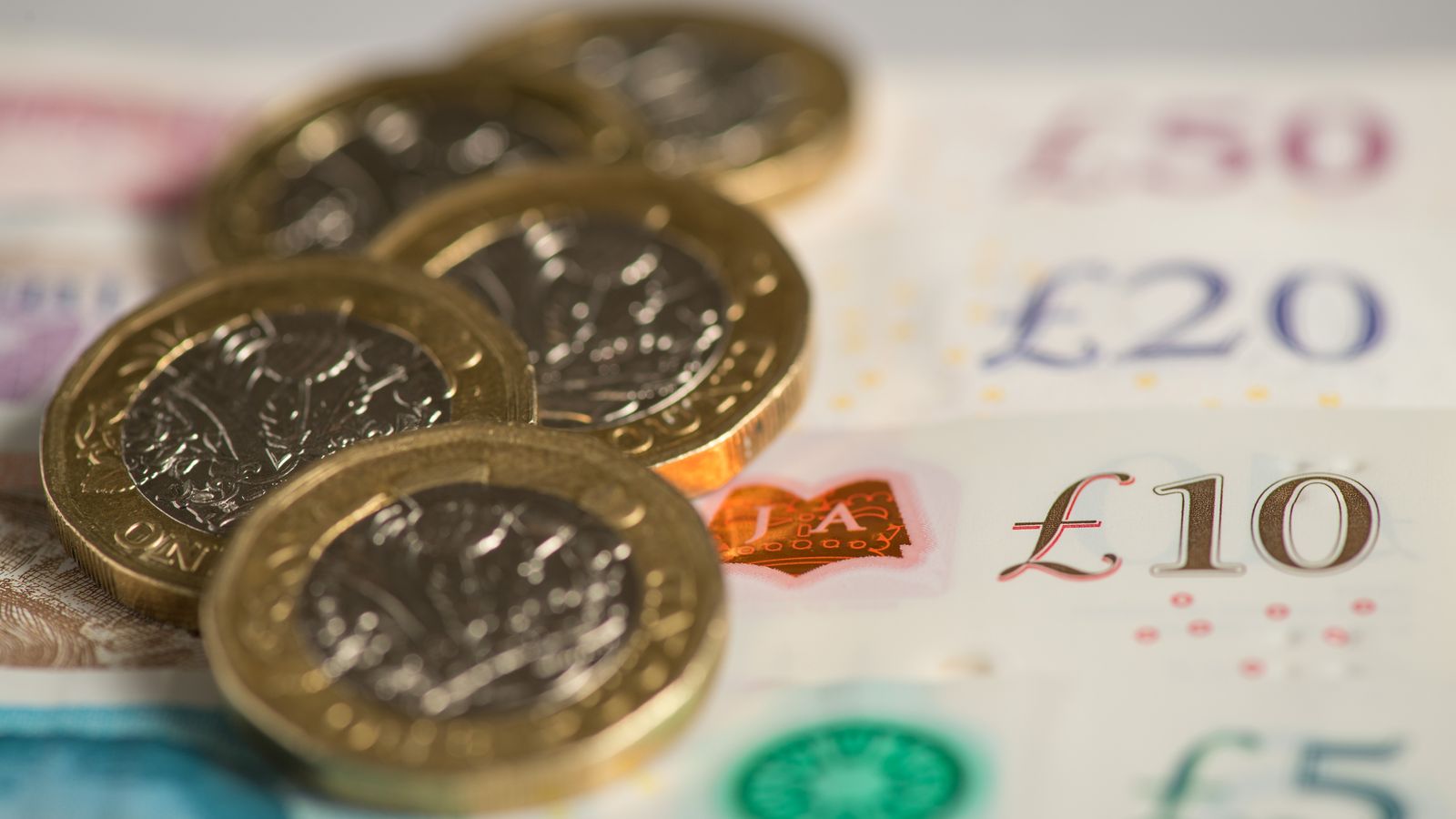UK no longer in recession, official figures show

The UK economy is no longer in recession, according to official figures.
Gross domestic product (GDP) grew by a better-than-expected 0.6% between January and March, the Office for National Statistics (ONS) said.
Economists in a Reuters poll had predicted the figure would be 0.4%.
Prime Minister Rishi Sunak said it showed that the economy had “turned a corner”.
He added: “We know things are still tough for many people, but the plan is working, and we must stick to it.”
A recession, which is defined as two consecutive three-month periods where the economy contracts, was declared in February.
It came after the ONS said that GDP, a major measure of economic growth, shrank 0.3% between October and December. It followed a contraction of 0.1% in the three months from July to September.
The slump was blamed on reduced consumer spending power amid high inflation and energy bills. Months of wet weather also contributed to keeping shoppers at home, commentators said.
The latest figures on Friday also revealed better-than-expected growth for March. GDP was up 0.4% during the month, which was higher than the 0.1% forecast by economists.
GDP growth figures for February were also revised upwards by the ONS, from 0.1% to 0.2%.
While previous recessions have been long-lasting – such as during the global financial crash of 2008 and 2009 – the latest one had been expected to be short-lived.
Economy ‘returning to full health’
Chancellor Jeremy Hunt said: “There is no doubt it has been a difficult few years, but today’s growth figures are proof that the economy is returning to full health for the first time since the pandemic.
“We’re growing this year and have the best outlook among European G7 countries over the next six years, with wages growing faster than inflation, energy prices falling and tax cuts worth £900 to the average worker hitting bank accounts.”
However, opposition parties said there was little cause for celebration.
Labour’s shadow chancellor Rachel Reeves said: “This is no time for Conservative ministers to be doing a victory lap and telling the British people that they have never had it so good.
“The economy is still £300 smaller per person than when Rishi Sunak became Prime Minister.”
Lib Dems Treasury spokesperson Sarah Olney MP said: “This Conservative Government crashed the economy and sent mortgages spiralling.
“If Rishi Sunak thinks hard-hit households will be celebrating today, he is even more out of touch than we thought.”
Read more from business:
Interest rate cut is not far off
New Post Office body plan rejected
Tata Steel strike moves closer
The ONS’s director of economic statistics, Liz McKeown said: “There was broad-based strength across the service industries with retail, public transport and haulage, and health all performing well.
“Car manufacturers also had a good quarter. These were only a little offset by another weak quarter for construction.
“In the month of March the economy grew robustly led, again, by services with wholesalers, the health sector and hospitality all doing well.”
Ruth Gregory, from research firm Capital Economics, said the figures suggested the UK’s economic recovery would be stronger than previously anticipated.
She added: “All the early indicators suggest that GDP growth rose robustly in April as well.
“At the margin, this may mean the Bank of England doesn’t need to rush to cut interest rates. But the timing of the first interest rate cut will ultimately be determined by the next inflation and labour market releases.”
The latest figures come after the Bank of England held interest rates at 5.25% on Thursday and issued new forecasts for the UK economy.
The Bank projected that growth would be stronger this year, with unemployment and inflation rates lower than previously expected.
Related
Why investing in women is a vital next step for…
Get Nadine White's Race Report newsletter for a fresh perspective on the week's newsGet our free newsletter from The Independent's Race CorrespondentGet our fre
Business secretary signals major shift on electric car policy to…
In a determined effort to retain Nissan’s manufacturing presence in Britain, Business Secretary Jonathan Reynolds has vowed to implement “substantial c
Joint Statement: Business Secretary and Fujitsu Services Ltd
Business and Trade Secretary Jonathan Reynolds today (Friday 7 March) met chiefs for Fujitsu in Tokyo to begin talks over the cost of redress for victims of th
UK foreign secretary backs multilateral defence funding for Europe
UK foreign secretary David Lammy has said that a new multilateral fund will be needed to secure Europe’s defence as he confirmed that Britain is “open to”













